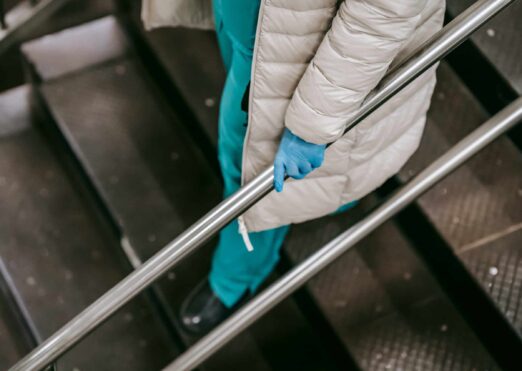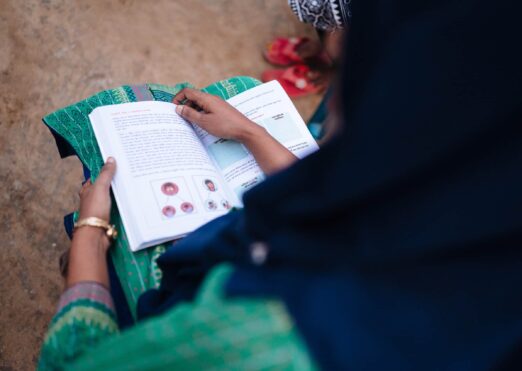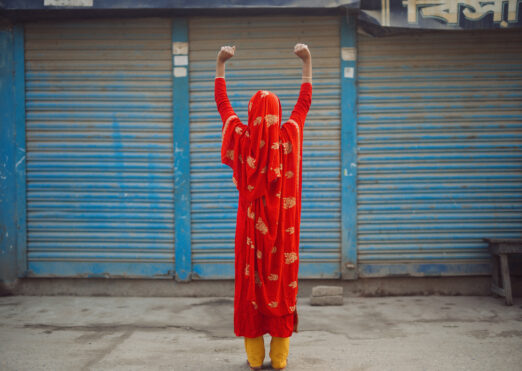International Women’s Day: Women Empowering Women
March 3, 2021
8 March marks a special day around the world as today, on International Women’s Day, we celebrate the empowerment of women. Today, we celebrate our wives, sisters, daughters, mothers, aunts and grandmothers, and all the other important women in our lives.
Women bring so much joy, hope, compassion, creativity, innovation, strength, power, beauty, life and love to the world, just by being who they are.
Unfortunately, not all women are free or have the liberty they deserve. Sadly, women account for 72 per cent of slavery and human trafficking victims. Abused, exploited, forced into sexual slavery, domestic servitude and forced labour – worked to the bone, raped, beaten and robbed of their freedom and dignity.
But there is hope! The resilience and strength of the survivors we work with at Justice and Care is testament to the character of women to survive and thrive despite the scars and trauma caused by their nightmare experiences.
Madri* and Ujay* are two women living in Bangladesh who met through Justice and Care and who have been empowering and supporting women who are slavery survivors in their community. Madri works for Justice and Care as a Programme Officer, supporting women like Ujay who is a slavery survivor herself and now supports other survivors as a peer counsellor.
Madri was inspired by an important woman in her life – her mother, who dreamed of working for social services. Madri came to work for Justice and Care because she wanted to fulfil her mother’s dream and help other women in her community. In her role, Madri has helped many survivors like Ujay on their road to recovery.
“From rescue to repatriation, rehabilitation to reintegration – you have to do a continuous job.”
Madri says that the support Justice and Care provides for slavery survivors really depends on each woman and what they need. “We are rebuilders who rebuild our survivor’s hopes and dreams. That is the most important job we are doing.”
At the end of 2012, Ujay’s dreams were shattered and her worst nightmares became a reality when she was trafficked to India. After suffering at the hands of her traffickers, Ujay was rescued in 2013 and placed in a shelter home.
In 2014, Justice and Care repatriated her back home to Bangladesh. Unfortunately, on her return home, Ujay’s family did not welcome her back. Instead, they rejected her, insulted her and forced her to marry again, even though she had already been married before.
Ujay’s new in-laws also rejected her and kicked her out of their home. Traumatised, abandoned and without a home, Ujay felt isolated, lost and hopeless.
Madri was assigned by Justice and Care to Ujay, as her aftercare officer – responsible for supporting her through this challenging time and helping to reintegrate Ujay back into her community. Through counselling and aftercare support we helped her as she processed her trauma. We also assisted in very practical ways, such as helping her to find new accommodation.
Through our support, Ujay gained back her sense of belonging in the community and she was empowered and equipped with the resources to rebuild her life. “With the help of Justice and Care, I got my self-confidence back.” Ujay was able to find her voice again in her community and overcome her family challenges.
Madri is truly inspired by Ujay and her strength despite all she has been through and said, “[Ujay] has done such a great job, she has confidence and she is a very hard working lady.”
During her own recovery, Ujay was given training and learnt more about trafficking. As a result, she was able to intervene and successfully stopped two other women from being trafficked, and also prevented a forced marriage!
Ujay’s story is one of hope and a reminder that there can be light after darkness. She now uses her voice to raise awareness and wants to see policy change at a national level. By partnering alongside Madri and the Justice and Care team in her community, as a peer counsellor Ujay is helping survivors and preventing other women from experiencing what she has been through.
*Names changed to protect identities.


